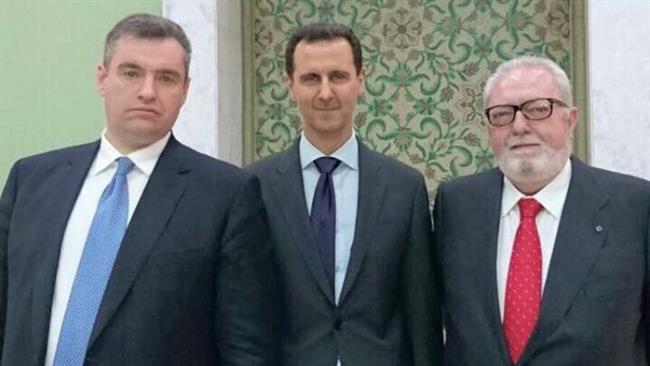
RNA - Senior members of the Parliamentary Assembly of the Council of Europe (PACE) on Friday passed a vote of no confidence in Pedro Agramunt accused of tarnishing the 47-nation international organization after a March meeting with the Syrian president.
The 65-year-old Spanish leader was also banned from traveling, attending meetings or speaking on behalf of the Strasbourg-based assembly.
“Standards and principles of the parliamentary assembly are more important than any individual member, and the integrity of our assembly must be upheld," said Sir Roger Gale, the British senior vice-president of PACE.
Last month, Agramunt along with a Russian delegation made a visit to the Syrian capital of Damascus, during which he met and was photographed with Assad.
The Russian-sponsored visit had taken place days before a chemical incident in Syria’s Idlib Province, which the Western countries blamed on the Syrian government.
Agramunt recently apologized for his trip to Damascus and signed a written declaration to the PACE office, saying that, "This visit was a mistake. And I have recognized that since I have seen full consequences of it."
He insisted he had traveled not representing the Council of Europe but as a Spanish senator “looking for peace.”
Over 80 people died in the April 4 purported gas attack on Khan Shaykhun.
Using the incident as a pretext, US warships fired 59 Tomahawk cruise missiles from two warships in the Mediterranean Sea at the Shayrat airfield in Syria’s central province of Homs on April 7.
US claimed that the suspected Khan Shaykhun attack had been launched from the military site. The attack was launched without any investigation into the reported gas attack.
Earlier this month, Syrian President Bashar al-Assad said in an interview with the Russian Sputnik news agency that the chemical incident was “a false-flag play just to justify the attack on the Shayrat base.”
He also accused the West of preventing any impartial investigation into the suspected chemical attack.
Meanwhile, Hans Blix, a former head of the International Atomic Energy Agency who was also a prominent weapons inspector at the United Nations, said Washington had presented “no evidence” for the suspected gas attack and that the Trump administration had made the decision to launch the strikes unilaterally without making a legal case.
847/940